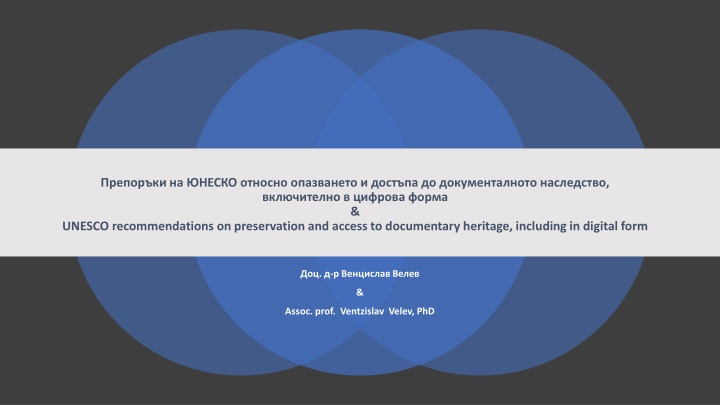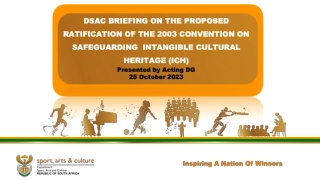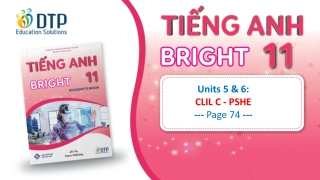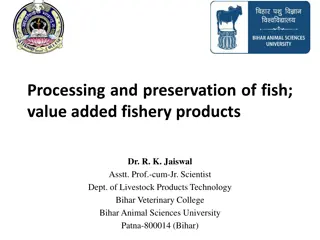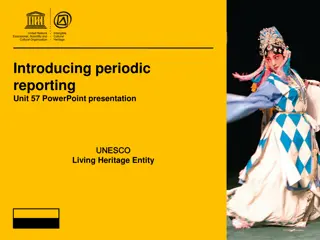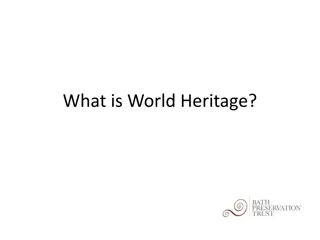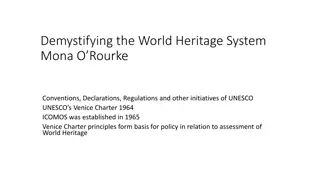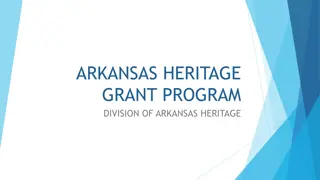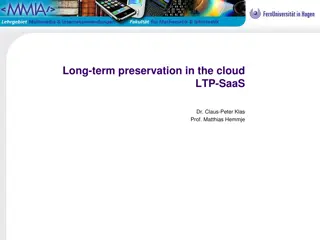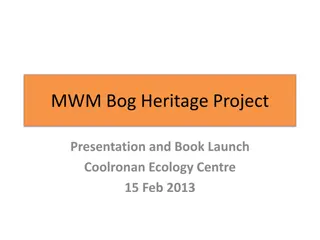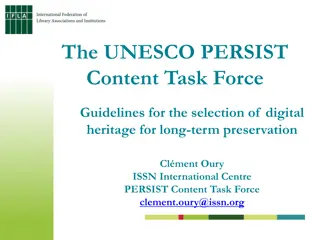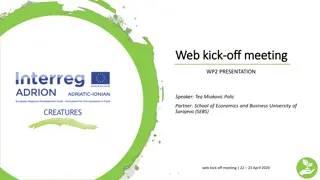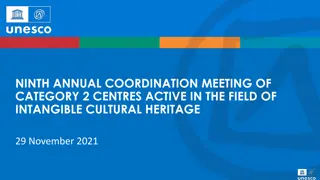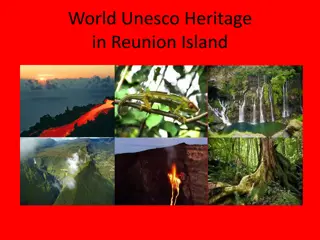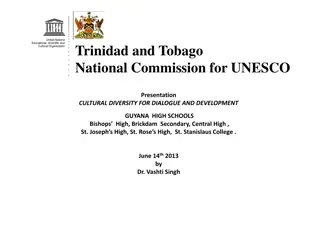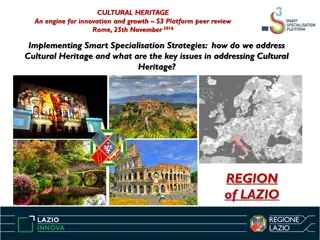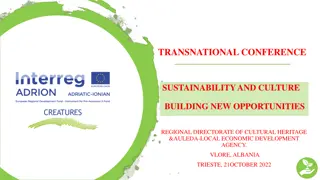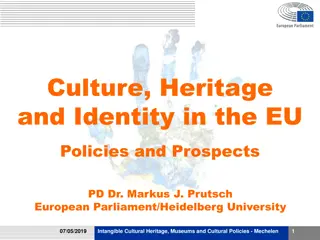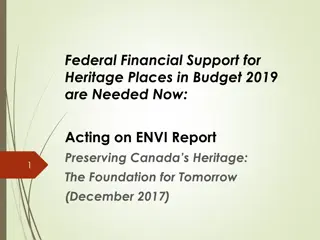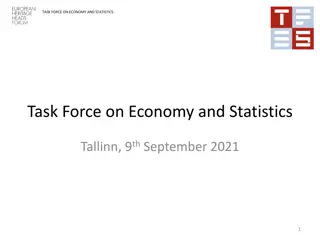UNESCO Recommendations on Preservation and Access to Documentary Heritage
UNESCO established the Memory of the World Programme in 1992 to address the challenges faced by documentary heritage preservation. The program aims to safeguard collections at risk of looting, dispersal, or destruction. Through strategic policies and standard-setting instruments, UNESCO strives to protect the world's documentary heritage, including in digital form. The implementation guidelines provide a framework for the preservation and access of these valuable sources of information.
Download Presentation

Please find below an Image/Link to download the presentation.
The content on the website is provided AS IS for your information and personal use only. It may not be sold, licensed, or shared on other websites without obtaining consent from the author.If you encounter any issues during the download, it is possible that the publisher has removed the file from their server.
You are allowed to download the files provided on this website for personal or commercial use, subject to the condition that they are used lawfully. All files are the property of their respective owners.
The content on the website is provided AS IS for your information and personal use only. It may not be sold, licensed, or shared on other websites without obtaining consent from the author.
E N D
Presentation Transcript
, & UNESCO recommendations on preservation and access to documentary heritage, including in digital form . - & Assoc. prof. Ventzislav Velev, PhD
Happily, missing documentary heritage is sometimes rediscovered. UNESCO established the Memory of the World Programme in 1992. Impetus came originally from a growing awareness of the parlous state of preservation of, and access to, documentary heritage in various parts of the world. MEMORY OF THE WORLD UNESCO PROGRAMME War and social upheaval, as well as severe lack of resources, have worsened problems which have existed for centuries. Significant collections worldwide have suffered a variety of fates. Looting and dispersal, illegal trading, destruction, inadequate housing and funding have all played a part. Much as vanished forever; much is endangered.
Documentary heritage in archives, libraries and museums constitutes a major part of the memory of the peoples of the world and reflects the diversity of peoples, languages and cultures. The issue of preserving this heritage has been a source of concern to specialists and other familiar with its fragility and the ensuing risks of losing important sources of information. Safeguarding the Memory of the World UNESCO develop a standard-setting instrument to provide the basis for the protection of the world s documentary heritage, including in digital form. Protection can be effectively achieved through strategic policies that contribute to enhanced national legislative and implementation frameworks in Member States.
November 2012 - 190th session of the Executive Board (190 EX/Decision 16) - results of a preliminary study of the various elements to be taken into consideration in developing an instrument to lay the legal basis for the protection of documentary heritage. 19 November 2013 - 37th session of the General Conference of UNESCO - findings of the preliminary study and draft Recommendation on preservation of, and access to documentary heritage, including digital heritage (37 C/ Resolution 53). Safeguarding the Memory of the World UNESCO Recommendation concerning the Preservation of, Access to, Documentary Heritage in the Digital Era 4 September 2014(CL/4075) - final report containing a revised version of the Recommendation on 3 April 2015 (CL/4104). 1-2 July 2015 - meeting of the Intergovernmental Special Committee related to the Draft Recommendation concerning the Preservation of, Access to, Documentary Heritage in the Digital Era. 3-18 November 2015 - Recommendation concerning the Preservation of, Access to, Documentary Heritage in the Digital Era - The new normative text, which was unanimously adopted (38 C/Resolutions Annex V) and is a result of a comprehensive consultative process, covers not only heritage aspects but also legal and intellectual property related aspects.
Implementation Guidelines for the "Recommendation Concerning the Preservation of, and Access to, Documentary Heritage Including in Digital Form" /Prepared by Ray Edmondson/ Implementation Guidelines for the 2015 Recommendation Concerning the Preservation of, and Access to, Documentary Heritage Including in Digital Form Commissioned by the MoW Secretariat in order to provide an initial reporting framework for Member States and other national memory institutions/stakeholders. They represent a work in progress and will continue being reviewed in light of new experiences as Member States pilot them for their own reporting obligations under the Recommendation.
, & UNESCO recommendations on preservation and access to documentary heritage, including in digital form . - & Assoc. Prof. Ventsislav Velev, PhD Adviser to the Minister of Culture Chairman of the Bulgarian Committee on the UNESCO Program "Memory of the World"
